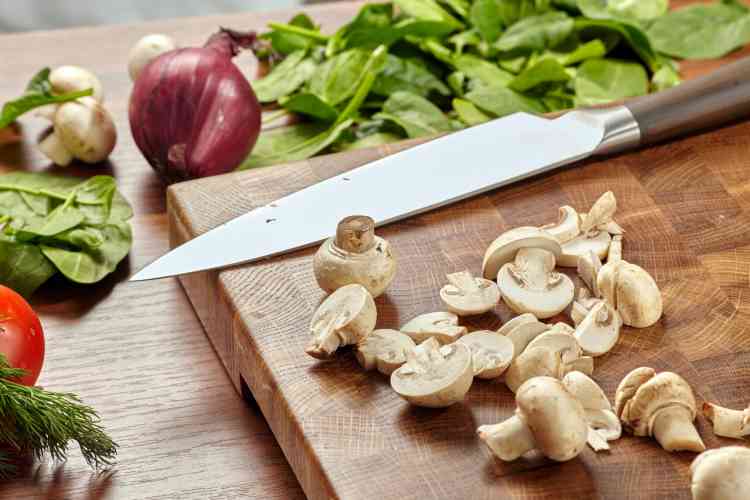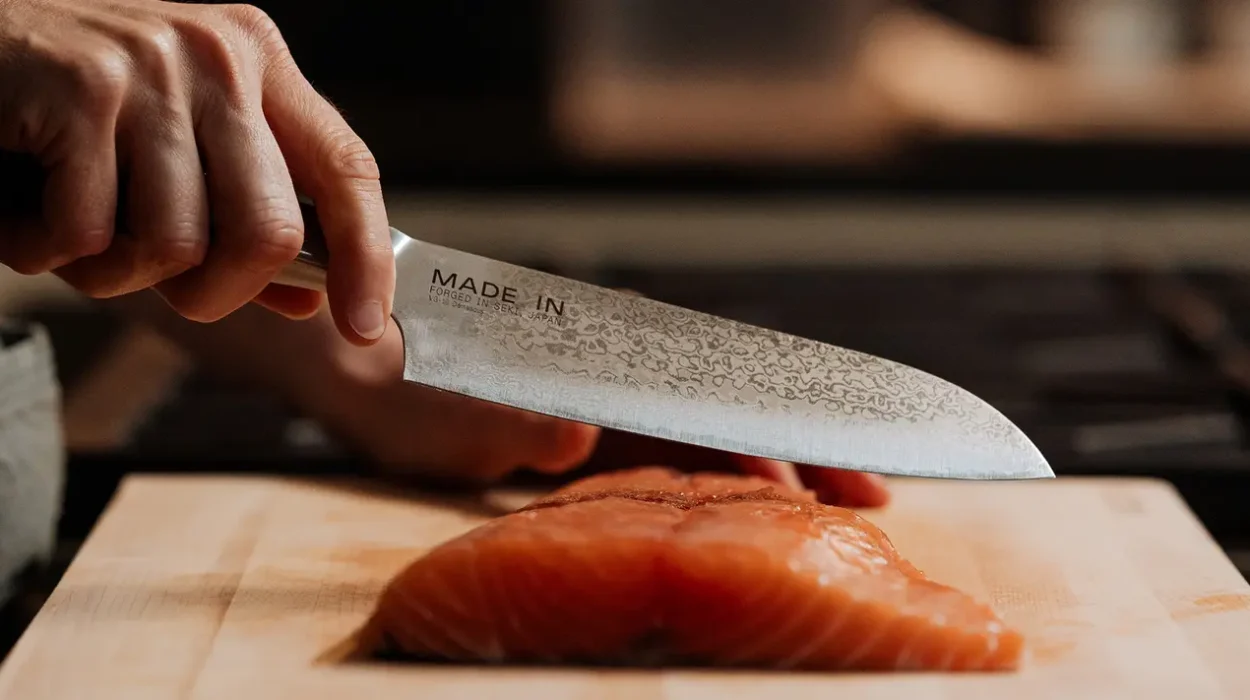When it comes to choosing the perfect knife for your kitchen, the debate often boils down to German vs Swiss knives. Both types of knives have a rich history and are renowned for their quality, craftsmanship, and performance. Understanding the differences between these two can help you make an informed decision about which knife is best suited for your culinary needs. In this article, we will delve into the characteristics, benefits, and potential drawbacks of German and Swiss knives to provide a comprehensive guide for kitchen enthusiasts.

The Rich Heritage of German Knives
German knives have been around for centuries and are celebrated for their durability and robust design. Originating from the knife-making capital of Solingen, Germany, these knives have earned a reputation for excellence in the culinary world. The Solingen stamp on a knife is a mark of high quality and craftsmanship.
German knives are traditionally made from high-carbon stainless steel, which provides excellent strength and resistance to stains and rust. These knives are known for their heavier weight and thicker blades, making them ideal for tasks that require force and precision. For more on the history of German knives, you can visit Element Knife.
Popular German Knife Brands
Some of the most renowned German knife brands include Wsthof and Zwilling J.A. Henckels. These brands offer a wide range of knives that cater to both professional chefs and home cooks. Each knife is designed to provide durability, balance, and precision, making them a staple in many kitchens worldwide.
Exploring Swiss Knife Craftsmanship
Swiss knives are often associated with the versatile Swiss Army Knife, but the country also produces high-quality kitchen knives. Swiss kitchen knives are known for their precision, lightweight design, and ease of use. They are typically crafted from stainless steel, providing a good balance between sharpness and ease of maintenance.
Renowned Swiss Knife Brands
Victorinox is the most famous Swiss knife brand, known for its Swiss Army Knives and kitchen knives. Victorinox knives are praised for their ergonomic handles, sharp blades, and affordability. They are a popular choice for both professional chefs and amateur cooks looking for reliable and versatile tools.
Comparing Blade Designs and Materials
When comparing German and Swiss knives, one of the main differences lies in the blade design and materials used. German knives typically have a thicker and heavier blade, made from high-carbon stainless steel. This makes them ideal for tasks that require more force, such as chopping and slicing through tougher ingredients.
On the other hand, Swiss knives feature a thinner and lighter blade, often made from stainless steel. This design allows for more precise and delicate cutting, making them suitable for tasks like filleting fish or slicing fruits and vegetables.
Blade Angle and Sharpness
The angle of the blade also differs between the two types of knives. German knives usually have a blade angle of around 20 degrees, providing a strong and durable edge. Swiss knives, in contrast, often have a sharper angle of about 15 degrees, which allows for more precise and finer cuts.
Handle Design and Comfort
The handle design is another crucial factor to consider when choosing between German and Swiss knives. German knives often feature a heavier handle that balances well with the weight of the blade. This design offers a sturdy grip and is preferred by those who need more control and strength when cutting.
Swiss knives typically have an ergonomic and lightweight handle, making them comfortable to hold for extended periods. The focus on comfort and ease of use makes Swiss knives a popular choice for those who prioritize precision and agility in the kitchen.
Price and Affordability
Price is another important consideration when comparing German vs Swiss knives. German knives are often more expensive due to their high-quality materials and craftsmanship. They are viewed as a long-term investment for serious chefs and cooking enthusiasts.
Swiss knives, on the other hand, are generally more affordable and offer excellent value for money. They provide a good balance between quality and cost, making them accessible to a wider audience.
Maintenance and Care Tips
Proper care and maintenance are essential to prolong the life of any knife. German knives require regular honing and occasional sharpening to maintain their edge. You can find valuable tips on German knife care on Knives Genius.
Swiss knives, while easier to maintain, also benefit from regular sharpening to retain their sharpness. It’s important to follow the manufacturer’s guidelines for cleaning and storing your knives to ensure they remain in top condition.
Cleaning Your Knives
Cleaning your knives properly can prevent damage and ensure safety. For guidance on cleaning, you can refer to the Wsthof cleaning guide, which provides helpful tips on maintaining your knife’s condition.
Choosing the Right Knife for You
The choice between German and Swiss knives ultimately depends on your personal preferences and culinary needs. If you value durability, strength, and a traditional design, a German knife might be the best fit for you. However, if you prefer a lighter, more precise tool with an emphasis on comfort and ease of use, a Swiss knife could be the better option.
It’s important to consider the types of tasks you perform in the kitchen and how the knife’s design can complement your cooking style. Whether you’re a professional chef or a home cook, having the right knife can make a significant difference in your culinary experience.
Conclusion
In the debate of German vs Swiss knives, there is no definitive answer as to which is superior. Both types of knives offer unique features and benefits that cater to different preferences and needs. By understanding the key differences and considering your personal requirements, you can make an informed decision that enhances your cooking experience.
For more insights into choosing the best kitchen knives, explore resources like Best German Knives on Knives Genius.

FAQs
What is the main difference between German and Swiss knives?
The main difference lies in the blade design and materials. German knives have thicker, heavier blades made from high-carbon stainless steel, while Swiss knives have lighter, thinner blades made from stainless steel.
Are German knives more expensive than Swiss knives?
Generally, yes. German knives are often more expensive due to their high-quality materials and craftsmanship, whereas Swiss knives offer excellent value for money.
Which knife is easier to maintain?
Swiss knives are generally easier to maintain due to their lighter weight and design. However, both types require regular sharpening and proper care to maintain their edge.
This article contains affiliate links. We may earn a commission at no extra cost to you.


